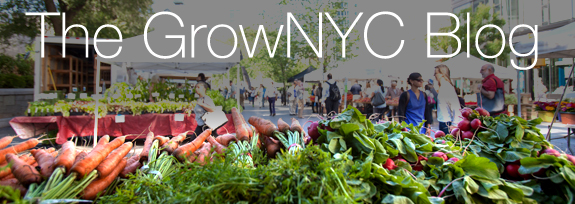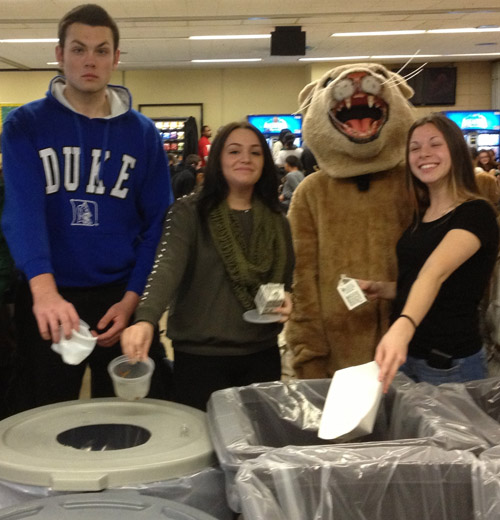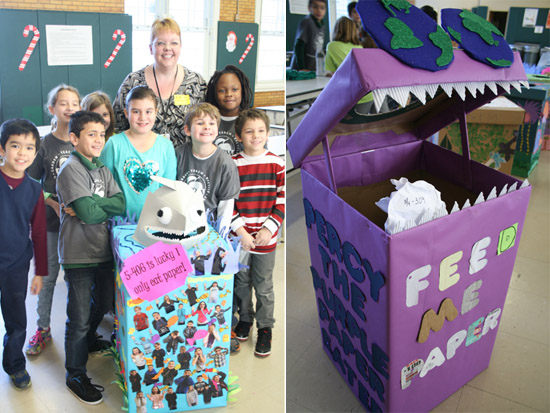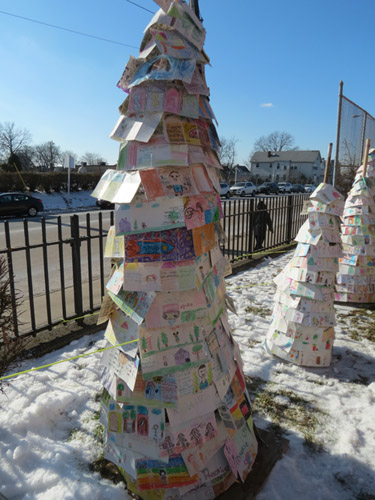Our friends at Drive Change are at the Union Square Greenmarket today, March 19, promoting their brand new food truck Snowday and maple syrup. Drive Change is a social enterprise with a fleet of food trucks serving delicious, market-inspired menus and supporting their mission to broaden opportunities for young people coming out of adult jail and prison to help lead them to crime-free lives and bright futures. We spoke with the founder, Jordyn Lexton, about what inspired Drive Change, what it is like running a food truck with no food or restaurant background and where she sees the future of the organization.
How did you get from the idea stage of Drive Change to today, with your first truck up and running?
For three years, I taught adolescent inmates (ages 16-18) years old on Rikers. During that time, I learned that NY State is one of two states (North Carolina the other) that sets the age of adult criminal responsibility at 16 years old; that means that if you get arrested when your sixteen or older you are automatically considered an adult in the system. As a result, you spend time in adult jail and you are likely to leave with an open felony conviction as opposed to a juvenile adjudication - future job and educational opportunities become restricted post release and recidivism is very high. Adult jail/prison is no place for youth - and I saw too many of my students, who were full of potential and desire to live crime free futures recycle back into the system. They told me they needed real quality jobs and I thought that a opening a business would be a good way to support them financially, provide a source of revenue for potential programing and teach transferable skills. Drive Change was born in concept in Feb 2012 - I left my full time job and set out on a journey to make it happen.
Why did you decide a food truck was the best way to connect with youth just out of prison?
The answer to this question is tri-fold:
1. MOBILITY AND VISIBILITY - I like the idea that the truck would be able to move to different areas and connect with the NYC public. I liked this for two reasons: 1. We could communicate advocacy around the age of criminal responsibility and other criminal justice issues to more New Yorkers to inspire community involvement; 2. The truck becomes a place for socialization and connection which is good both for the young people we are working with but also for the public at large - we believe that by being visible and hospitable we dismantle preconceived notions that people have about formerly incarcerated people.
2. THE FOOD INDUSTRY - As Chef Roy acknowledges often food has a transformative power - it can transcend race, class and cultural divide. At Drive Change and by extension, at Snowday, we embrace the philosophy of the communal table. Over meals, people connect, forge empathy and change evolves organically. The food industry also happens to be an industry that is receptive to hiring people with criminal records - it is traditionally a place where people can rise through the ranks without formal education and still be deemed "successful" and valuable.
3. TRANSFERABLE SKILLS - At Drive Change, we teach transferable skills through the mechanism of the food truck work. I realized early on that recidivism is not combated simply with employment; we must provide more than just a job to the young people that we work with. The food truck industry is creative, it is rooted in transferable skill learning around the areas of social media and marketing (you have to know Twitter well and keep you digital life active to be successful), money management and accounting (we will use our POS system as a tool to teach young people about financial management and small business ownership) and hospitality. Culinary arts will be taught as well, but hospitality is our pulse. It is with hospitality - the kind that, as Danny Meyer describes, exists purely when you believe the other person is "on your side" - that we will be able to guide all of our practice and create opportunities for the young people involved.
You managed the Kimchi Taco truck to prepare for running Drive Change, what was that experience like for you? Did you have any food or restaurant experience before you started on the food truck?
I had ZERO food/restaurant experience before Kimchi Taco, unless you're counting eating. If you're counting eating, I had PLENTY of that. So, I had a taste for it, but I knew that starting a food business with no food management/business experience was beyond lofty, it was illogical. I learned the business, learned how hard it was, figured out what to do about food truck permits, networked with other food truck business owners, got my own licenses and credentials and built a foundation for what kind of food the public would enjoy. The food truck business is a volatile one and we know that even with the preparation we've done we are going to hit roadblocks, but working in the field gave me insight that makes it possible - I speak the language now.
How did you decide on maple syrup to be the theme of your first truck, Snowday?
I had one food while traveling in Canada that really blew my mind and got me thinking about starting a food truck: it was sugar on snow. Sugar on Snow is fresh snow with hot maple syrup poured on top. It's awesome and it's really hard to find anyone outside of Canada, Vermont, Upstate NY, New Hampshire. As I began to explore maple syrup, I learned that NY is the third largest producers of the commodity - which is awesome because it allows us to source all of our syrup locally and promote the local product...no more traveling up to Canada for amazing maple syrup!
What are the future plans for Drive Change? Would you ideally like to expand outside of NYC?
We see ourselves growing into a fleet of food trucks. We would like to scale about a truck a year. With each truck, we can work with 30 young people per year [and] we see ourselves operating across the county, licensing the model/curriculum and expanding to multiple cities throughout the US (eventually even internationally). We also hope to be full self-sustaining in 5 years, as the sales from the truck(s) recycle back into the organization to subsidize the program costs. We are excited to grow/expand but we recognize that with growth comes shift in modality and our ability to be super hands on. So, while growth may come in time, we are heavily focused on quality over quantity.









